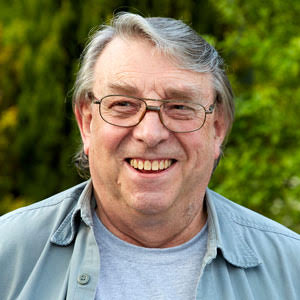Living with multiple health problems
Chris Profile
Chris – A listening person, non-judgemental and a will to engage and challenge authorities and their systems.
Chris – A listening person, non-judgemental and a will to engage and challenge authorities and their systems.

Chris is a former family carer who cared for his disabled daughter for going on 40 years with his wife and a team of carers. His wife died in September 2020 and then followed in October 2022 with his disabled, however, he continues to be involved with social care and health and the voluntary/charity sector.
With his areas of long experience, he currently continues to engage in working groups with his Local Authority and various areas of health trying to enact change for persons with disabilities and their families.
Copyright © 2024 University of Oxford. All rights reserved.


